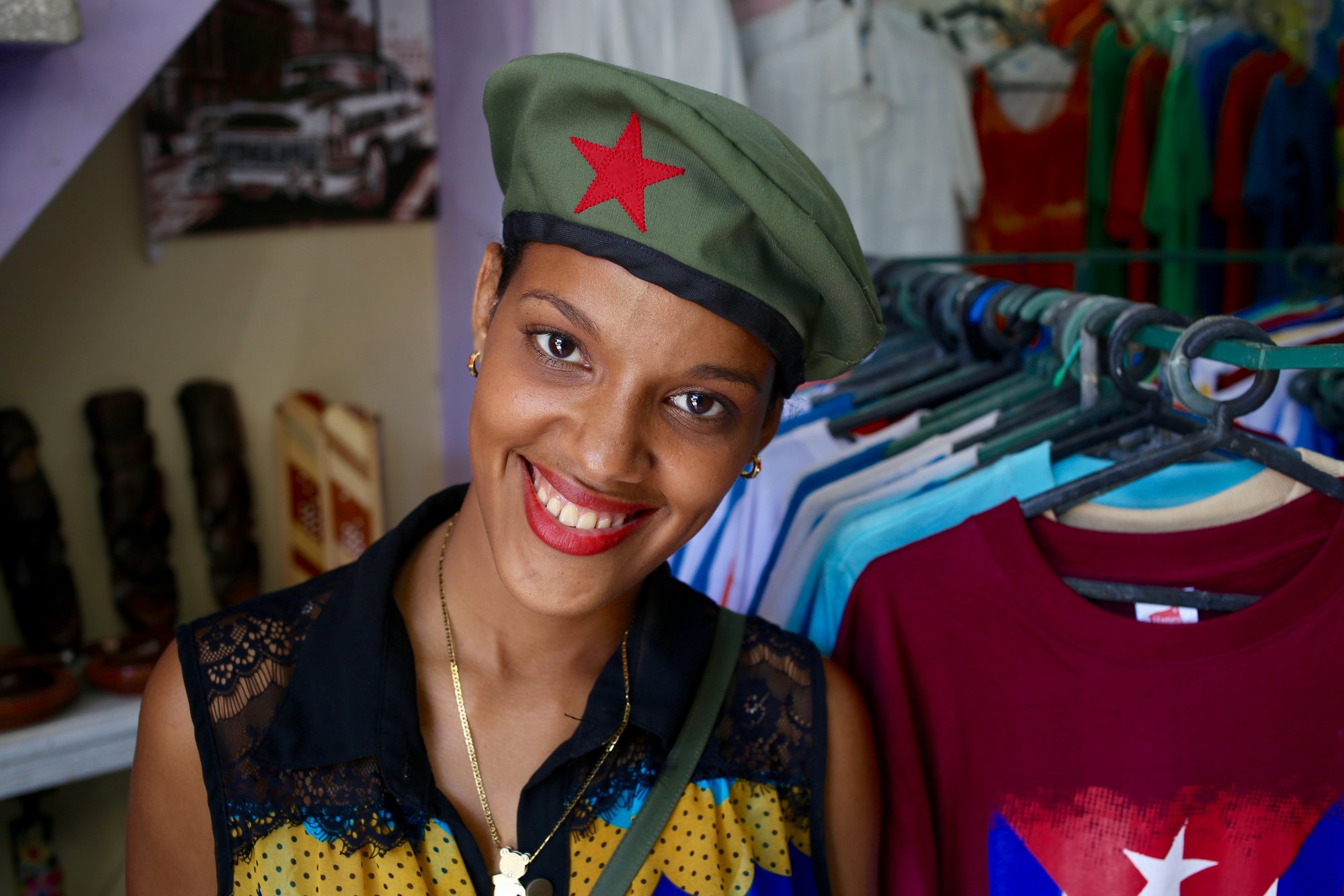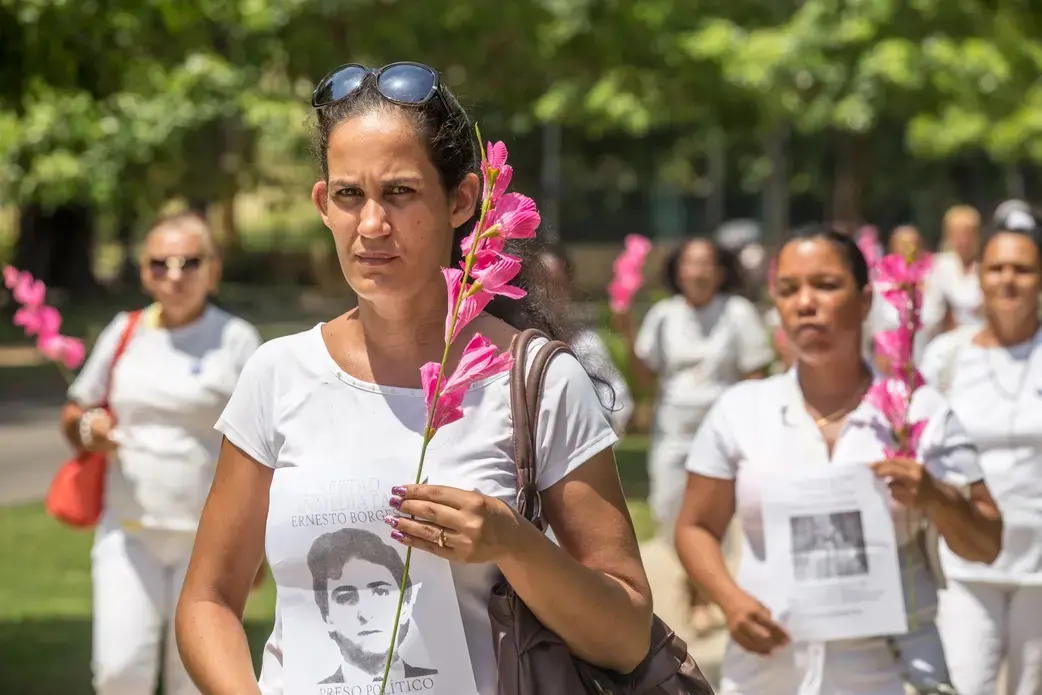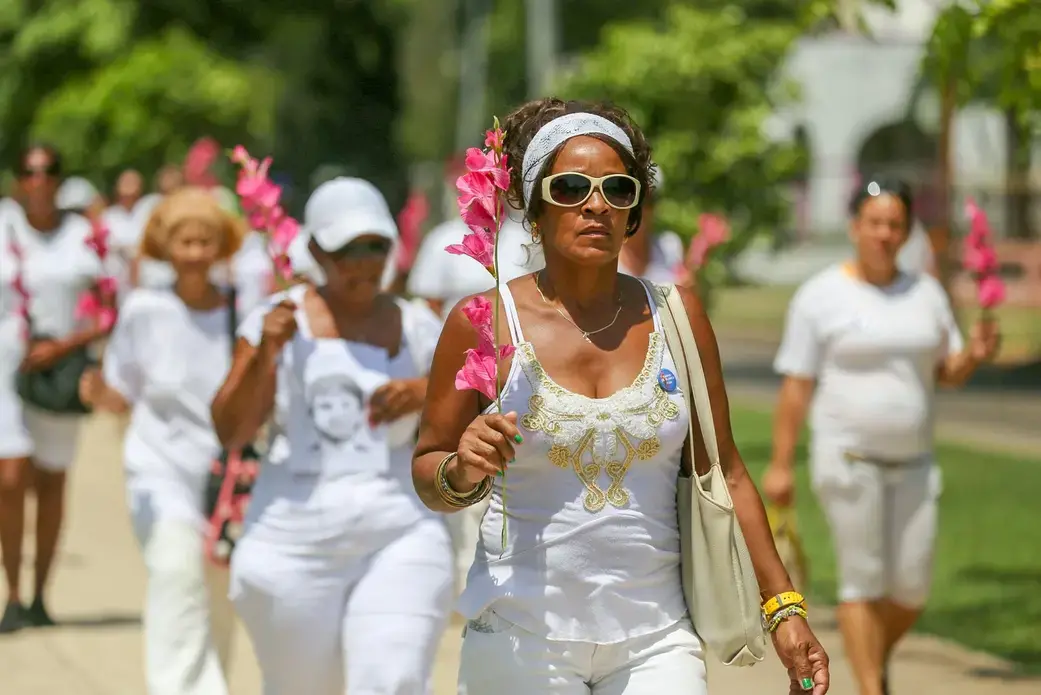The graffiti artist jailed for 10 months after he painted the names "Fidel" and "Raúl" on two pigs said today he isn't backing down.
"Art is my life and I can't breathe without a life," said Danilo Maldonado, also known as "El Sexto."
"Of course I'm going to continue doing what I do – rebellious art," the 32-year-old artist told Along the Malecón.
El Sexto's release from jail on Oct. 20 was a fleeting victory for democracy activists, but they continue to face intense pressure from Cuba's security forces.
The number of physical attacks against dissidents and democracy activists in September jumped to 93, from 21 in August, a 342 percent increase, according to the independent Cuban Commission for Human Rights and National Reconciliation in Havana.
Security police also carried out at least 882 arbitrary detentions in September, the highest number since June 2014, the commission reported on Oct. 5.
Many of the arrests were aimed at preventing democracy activists from attending events with Pope Francis, who had called for a "revolution of tenderness" while visiting Cuba in September.
"Before and during the visit of Pope Francis, Cuba's government unleashed a veritable wave of political and social repression, with a toll of at least 353 preventive arrests of peaceful dissidents to prevent them from participating in mass rallies with the pope," the commission said.
Four activists who approached the pontiff while he was aboard the popemobile in Havana were quickly detained. On Sept. 29, authorities accused them of public disorder and other crimes.
The four activists remain in jail. Their relatives say they don't understand why.
"They didn't do anything bad," the sister of one activist said in a YouTube video. "They didn't plant a bomb. They didn't hurt the pope."
On Thursday, democracy activists called for the activists' release and threw leaflets into the air outside the Attorney General's office in Havana.
Cuban authorities on Friday were busy hunting down and arresting the protesters, independent journalist Lázaro Yuri Valle Roca tweeted.
The human rights situation in Cuba has worsened in recent months, said Antonio Rodiles, director of Estado de SATS, a project aimed at boosting human rights and freedom of expression.
"Violence is increasing," said Rodiles, 43, a former math professor who lives in Havana.
On a Sunday morning this summer, he said, Cuban agents grabbed him off the street, shoved him into a car and broke his nose.
It was one of 161 reported physical attacks that security forces carried out against democracy activists from June through September, rights advocates say.
Even before Secretary John Kerry visited the island in August, Rodiles had warned the U.S. government not to renew diplomatic relations with Cuba without demanding concessions, including greater respect for human rights.
Now that the two nations have re-established ties, Rodiles said Cuban authorities have a new sense of legitimacy.
"They feel more free to repress and to use violence against the opposition movement," he said.
Government supporters are unapologetic. They describe the dissidents as "mercenaries" who have little support inside Cuba and receive funding from the U.S. government and U.S.-financed organizations.
Cuban authorities cracked down on the so-called "mercenaries" in 2003, arresting 75 democracy activists, journalists and others and slapping them with prison terms of up to 28 years.
In 2010, authorities began releasing the activists. By 2011, all had been freed or forced into exile in Spain as part of a deal brokered by the Roman Catholic Church.
Cuban officials began using short-term detentions rather than long jail sentences to try to rein in the political opposition.
Short-term arrests jumped from 2,074 in 2010 to 8,899 in 2014.
Such detentions so far this year have declined by 32 percent, the human rights commission said.
The number of people arrested for political reasons from January through September dropped to 5,146, from 7,599 during the same period last year.
But dissidents say police are using increasing force.
"Well, right now we are being very, very repressed," said Arelys Blanco, 23, member of Ladies in White, founded in 2003 to seek the release of the 75 imprisoned activists.
"They hit us when they are going to arrest us. They handcuff our hands behind the back and they keep us that way for as many as six hours. That is torture."
Not enough people inside Cuba are aware of the plight of the opposition, dissident leader José Daniel Ferrer said. He wants to change that. And now that the U.S. and Cuba have renewed diplomatic ties, he sees an opportunity.
"As a greater number of visitors and Cuban-Americans come to Cuba, we must convince all that we can to help us inform Cubans about the island," Ferrer said.
"If those who come here bring some DVDs with the latest news from YouTube about the struggle, things would move along more quickly. Disinformation continues to be one of our main problems.
We must work to have as many allies and friends and supporters among the foreign visitors."
Cuban officials accuse the U.S. government of financing opposition groups to undermine the socialist government.
Over the past three decades, the U.S. government has spent more than $1 billion on programs to boost democracy, freedom of expression and the free flow of information in Cuba, budget records and congressional reports show.
The State Department is managing $20 million in Cuba programs this year. After President Obama announced that the U.S. and Cuba were re-establishing diplomatic ties, American lawmakers raised the amount to $30 million for fiscal 2016, which began Oct. 1, 2015.
Ferrer said he is grateful for the support he receives from the Miami-based Foundation for Human Rights in Cuba and other non-governmental organizations.
"Without that support, I could not respond to your questions. I would not have a laptop or a mobile phone with e-mail," Ferrer told Along the Malecón. "The Cuban opposition struggles under very adverse conditions and like any organization that fights for democracy in countries with totalitarian regimes, we need the solidarity and the material support of organizations and governments in the free world."
Ferrer is leader of the Patriotic Union of Cuba, one of the country's largest opposition groups. He received a 25-year prison sentence in 2003 and refused forced exile to Spain in 2011, choosing instead to stay in Cuba and fight for democracy.
Asked about the future, Ferrer said there are three things opposition groups must do:
Convert their ideas and proposals into action;
Turn Cubans from passive observers to active members of the opposition;
Unite dissident groups into a single force.
Unity has been a problem for Cuba's political opposition. Ladies in White, for instance, split into two after members got into a dispute over leadership in 2014.
Berta Soler, who heads the largest of the two groups, blames the Cuban government for the trouble.
"The Cuban government has tried to mislead or confuse the Cuban populace, as well as the international community, creating a new parallel group with the same name and wearing the same outfit that we have in Ladies in White," Soler said.
Some members "were blackmailed by the Cuban government and they have created this new group very similar to us, to confuse."
Laurita Labrada Pollán, whose mother co-founded the organization in 2003, leads the smaller group. She said she split off from the others because Soler began allowing men to take part in Ladies in White activities.
Both groups have the same dream: Democracy.
"We have no freedom of speech," Labrada Pollán said. "We have no freedom of association. We have no freedom of movement and those are our main goals, that in Cuba true democracy takes hold because in Cuba there is no democracy."







